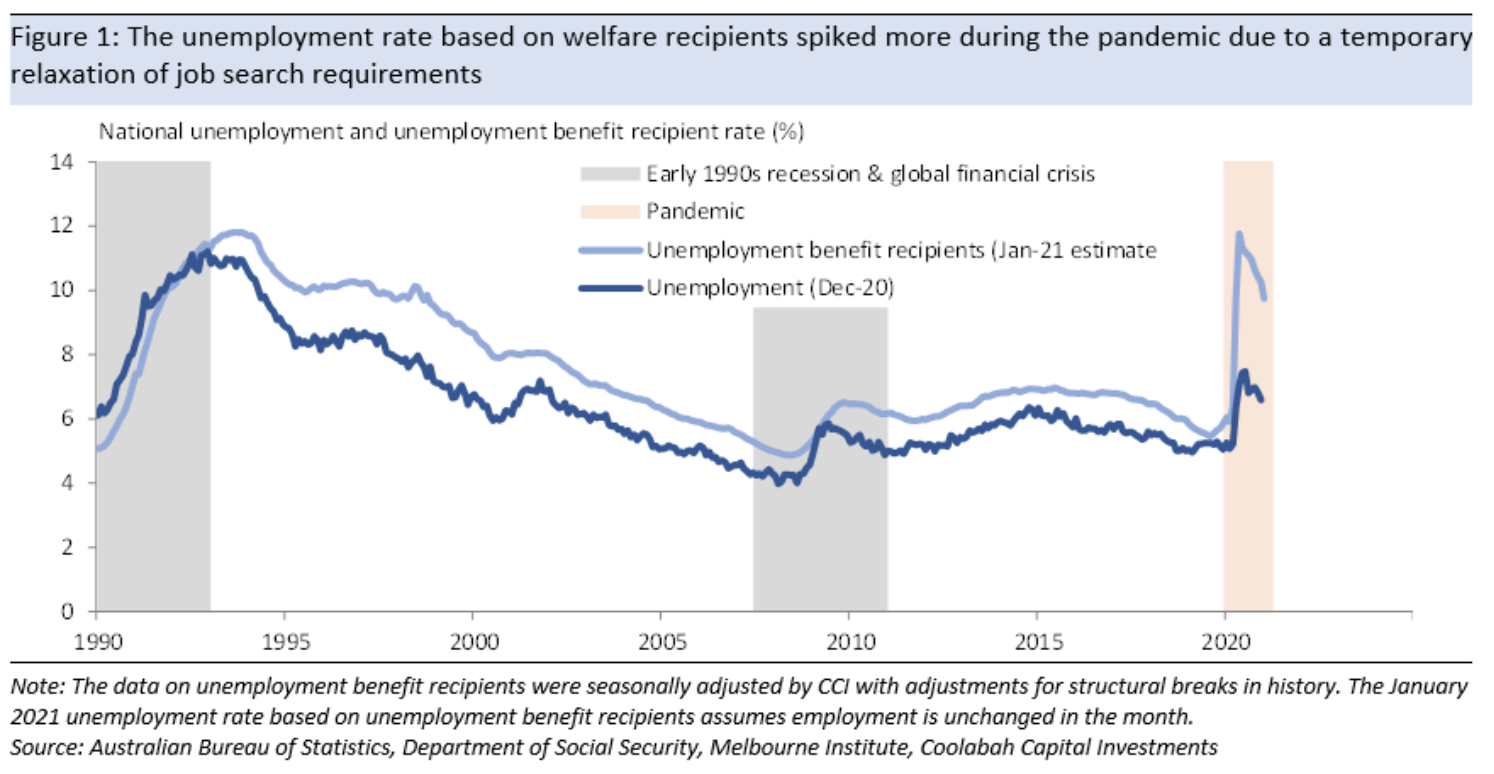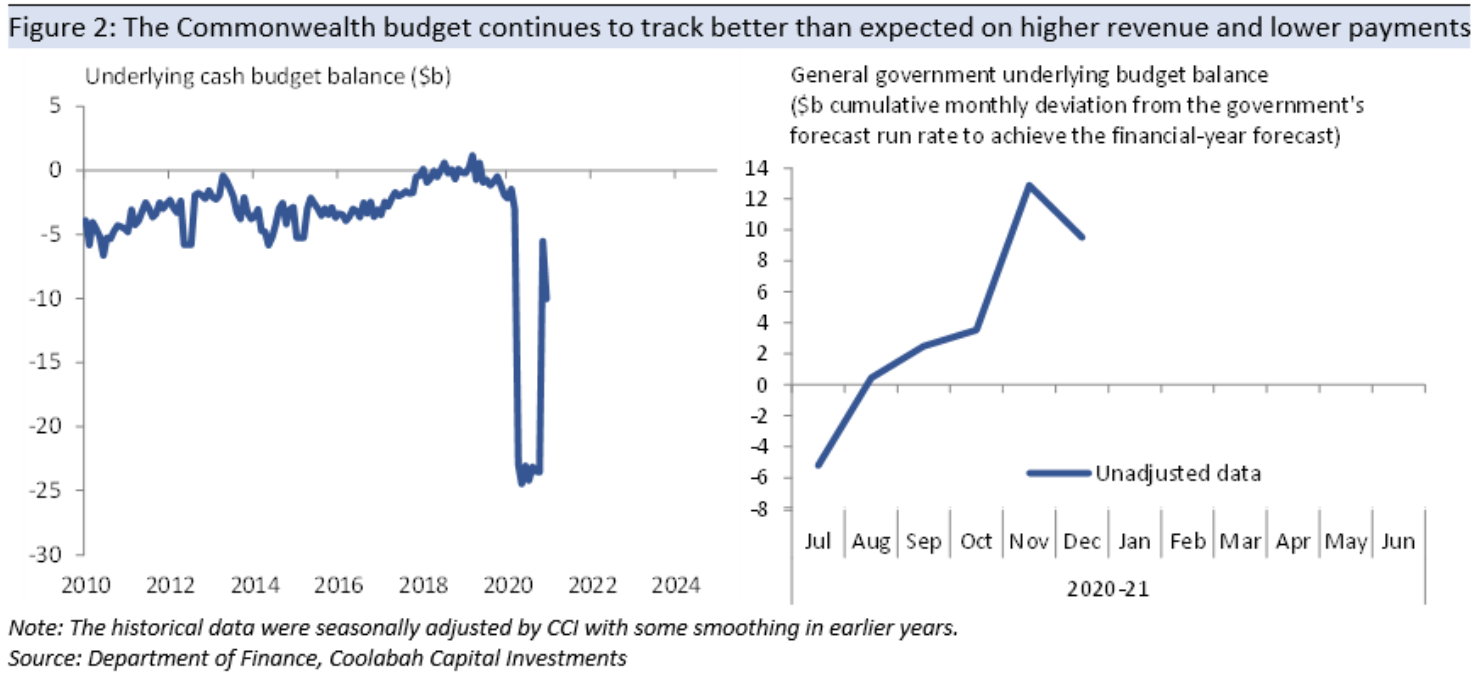Likely Budget surprise ahead: what this means for your portfolio
Australia’s economic recovery continues to underpin
a significant improvement in the Commonwealth budget. Last week, Prime Minister Scott Morrison said that the number of people on JobSeeker payments fell by 0.1mn in January, which is a substantial decline. Assuming that the number of people on Youth Allowance was unchanged in the month, it means that the total number of people on unemployment benefits has fallen from an all-time high of 1.6mn at the height of the pandemic in May to start the year at 1.4mn (this compares with 0.7mn at the end of 2019).
The ongoing improvement in welfare payments increases Coolabah's confidence that the Commonwealth budget deficit for 2020-21, which, while the biggest shortfall in Australia’s peacetime history, will likely come in materially below the government’s latest forecast.
Treasury expects the underlying cash deficit will reach $198 billion this financial year, but monthly data suggest the deficit will undershoot this estimate.
In the first half of the financial year, the deficit was tracking about $10 billion better than the run rate required to hit the annual forecast, or about $15bn better on Coolabah's seasonal adjustment of the monthly figures. This turnaround reflects both higher revenue and lower payments.
The fall in unemployment benefits also points to further recovery in the labour market, although the scale of the improvement is likely overstated because of changed administrative arrangements. At the worst of the pandemic, the government suspended the mutual obligation tests that required welfare recipients to actively search for work.
As a result, the unemployment rate calculated using unemployment benefit recipients peaked at 11.8% in May, well above the July high in the official unemployment rate of 7.5%, which only captures people who actively look for a job. The welfare recipient version of the unemployment rate has since fallen sharply to an estimated 9.8% in January, where this improvement reflects both economic recovery and the reintroduction of job search requirements (the official unemployment rate fell to 6.6% in December with January data due Thursday).


Access Coolabah's intellectual edge
With the biggest team in investment-grade Australian fixed-income, Coolabah Capital Investments publishes unique insights and research on markets and macroeconomics from around the world overlaid leveraging its 13 analysts and 5 portfolio managers. Click the ‘FOLLOW’ button here and never miss our updates.
4 topics
1 contributor mentioned

